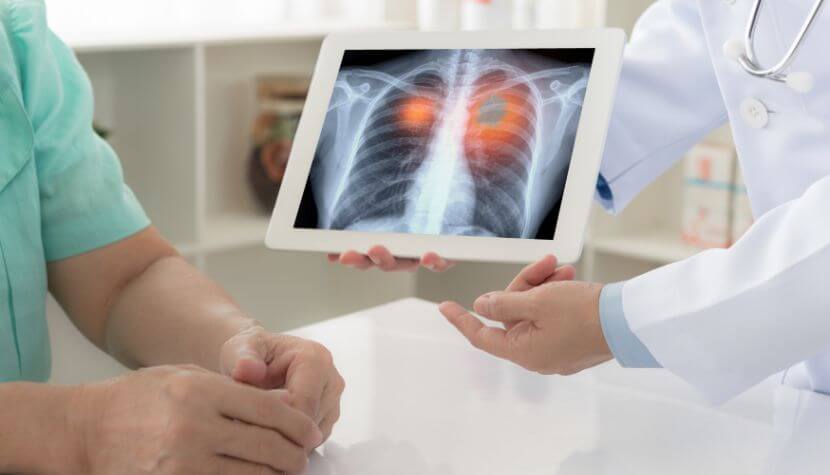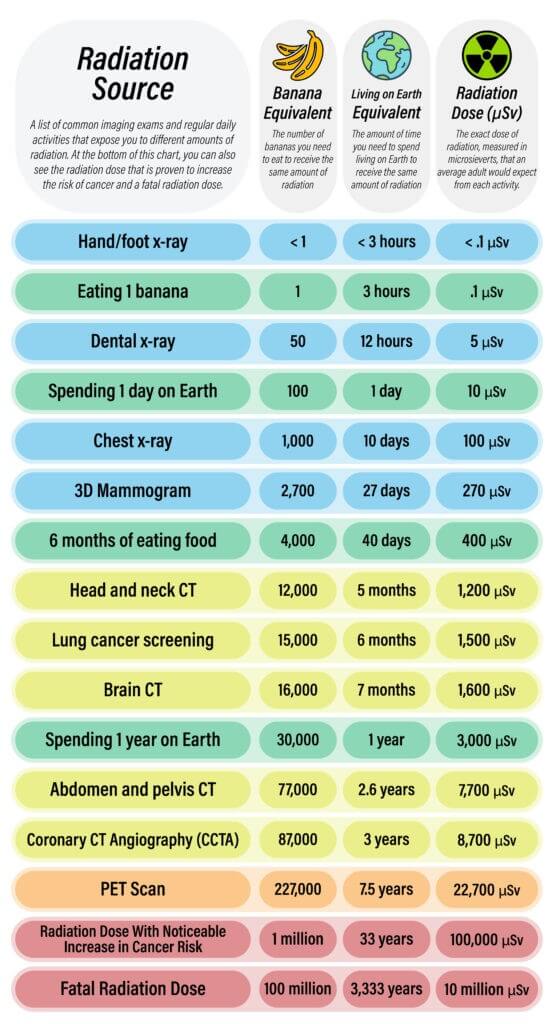
November is Lung Cancer Awareness Month. This month, we want to raise awareness about lung cancer, how to lower your risk, and how important screening is for those at high risk. Lung cancer happens when cells in the body grow out of control, starting in the lungs. Lung cancer may spread to lymph nodes or other parts of the body.
More than 200,000 people in the United States are diagnosed with lung cancer each year, and more than 150,000 die from this disease. Lung cancer is one of the most common cancers among men and women and is the leading cause of cancer death. It can feel overwhelming to read statistics about different types of cancer, and lung cancer is no exception.
There are actions you can take to lower your risk of lung cancer. The most important thing you can do to prevent lung cancer is not to smoke or to quit smoking if you do. You can also avoid secondhand smoke and get your home tested for radon to lower your risk of getting lung cancer.
There is hope for a future with less lung cancer because we know that early detection works. If lung cancer is found early, there are more options for treatment.
New Lung Cancer Screening Guidelines Using Low-Dose CT – the only recommended screening test for lung cancer
In March 2021, the US Preventive Services Task Force (USPSTF) updated its lung cancer screening guidelines for the first time since 2013. This recommendation nearly doubled the number of individuals eligible for screening by lowering the recommended age range to begin screening to age 50 (from 55) as well as reducing the minimum pack-year smoking history from 30 to 20.
Annual lung cancer screening is now recommended for those 50 to 80 years old, who have a 20-pack-year smoking history and currently smoke, or have quit within the past 15 years. A pack year is smoking an average of one pack of cigarettes per day for one year. Talk with your primary care provider to see if screening is right for you.
Let’s talk lung cancer screening.
The ONLY recommended screening test for lung cancer is low-dose CT (or LDCT). ImageCare was the first outpatient center in the area to offer this test, and it is now available at ImageCare seven days a week. LDCT is covered by insurance for those who qualify. LDCT is a VERY simple test that takes less than 5 minutes once you get in the CT room. As a patient, your job is to lie still and hold your breath for approximately 5 seconds. Another positive of lung cancer screening is patients can leave their clothes on, there’s no IV involved, no bowel prep, no sedation, you can eat whatever you want beforehand, don’t have to hold meds, it’s noninvasive, and doesn’t touch or compress you. Still, it provides healthcare professionals with a wealth of information about the chest. This exam will benefit patients at high risk for lung cancer and can also provide information to their physicians about cardiovascular disease and other lung diseases.
LDCT lung cancer screening uses low-dose radiation, so you will need a referral from your primary care provider to undergo the screening. Rest assured, LCDT exposure is the same as eating 15,000 bananas or 1/5 of what you would get from natural background radiation in a year! Without a doubt, the risk of developing cancer with increasing exposure to radiation is a proven entity. However, it is important to note that every single dose of radiation from a medical imaging study has overall become lower in the past ten years due to advances in CT technology.

Source: UVA radiology blog
CCP’s Lung Cancer Screening Program
Community Care offers a robust, multidisciplinary lung cancer screening program to support our patients. Our lung cancer screening teams include:
• Our subspecialized thoracic radiologists at ImageCare are Dr. Camille Dumas, Dr. John Fantauzzi, Dr. Frederic Hellwitz, Dr. Stacey Langford, and Dr. Marco Vitto. We offer LDCT for lung cancer screening at ImageCare Balltown, Clifton Park, Guilderland, and Latham. ImageCare Latham can now accommodate patients for CT (and ultrasound) on the weekends (Saturdays and Sundays from 10 am to 6 pm).
• Dr. Shailesh Patel, Dr. Abul Azad, MPH, FCCP, and Jodi Conlan, MSN, AGNP from CapitalCare Pulmonary Medicine in Niskayuna.
• Dr. Arun Puranik and Dr. Boris Spektor from Image Guided Radiation Therapy in Latham.
• Thoracic surgeon Dr. Thomas Fabian, our partner from Albany Medical Center.
• CCP lung cancer nurse navigator Lindsay Hall, BSN, RN, and oncology nurse navigator Elizabeth Stockwell, BSN, RN, OCN.
Meet Our Lung Cancer Nurse Navigator, Lindsay Hall
Lindsay is on the other end of the phone for patients undergoing lung cancer screening. As a nurse navigator, she helps with several things as part of CCP’s oncology division. In a nutshell, Lindsay is the point of contact for patients and providers. She reviews the patient’s chart and CT scans together with the patient, answering any questions they may have. She provides smoking cessation counseling and resources for patients to utilize. If patients receive screening results that read either a lung-RAD 3 (probably benign) or 4 (suspicious), Lindsay will extend outreach to the patient’s primary care provider or the ordering physician to coordinate care. If patients require a three or six-month follow-up CT, she will track their results and review them with the patient. If patients need any pulmonary, thoracic, or cardiology referrals, Lindsay also assists with setting up those appointments.
Lung cancer screening is the BEST way to prevent lung cancer deaths— the leading cause of cancer death in the United States. The recent change in screening criteria means more people can get screened earlier, which means catching the disease earlier, better treatment options, and lives saved. Visit the ImageCare Medical Imaging website to learn more about our lung screen screening service. For information about our cancer care program (including lung cancer screening, diagnosis, and treatment), visit our Community Oncology website.
